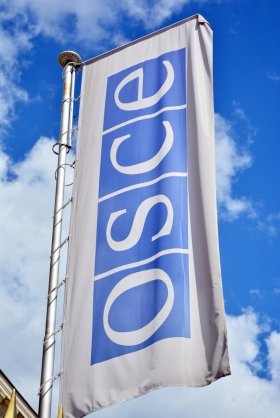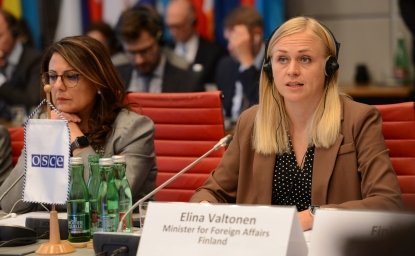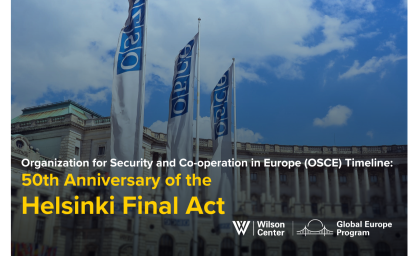Reimagining the OSCE for a New Generation


The Wilson Center's Global Europe Program partnered with Yale University on a capstone project focused on the OSCE. The final report of this capstone cohort reflects a new generation of thought leaders' views and perspectives on the challenges facing the OSCE today and how to reimagine the OSCE of tomorrow.
Almost 50 years after its inception, the Organization for Security and Co-operation in Europe (OSCE) struggles as a shell of its former self. Russia, waging an illegal war of aggression against Ukraine, plunged the Organization into disarray by blocking consensus and threatening the OSCE’s very existence by hostaging the OSCE’s administrative functions. The crisis has limited the OSCE’s ability to conduct field missions and confidence-building work among its 57 participating states and has exposed fundamental flaws and institutional weaknesses within the Organization.
Despite these challenges, there remains opportunities for reform that—although currently infeasible due to Russia’s intransigence—will safeguard the organization from dysfunction and prevent future conflicts.
The nine authors of this paper belong to the generation born between the years 1997 and 2012 (hereafter referred to as “our generation”). Growing up in a world connected by social media and the internet, we have learned to navigate a complex information landscape and wield the tools at our disposal to shape society. While we do not speak on behalf of the entire generation, we recognize common traits and values in our generation as its members.
Through these shared values—our so-called “generational lens”—we reimagine the OSCE as a leading intergovernmental institution aligned with our goals and ideals and devoid of the problems left unsolved by those currently in power.
To adapt to our increasingly interconnected world, enhance the Organization's effectiveness, and address the specific needs of our generation, we recommend that the OSCE:
- Harness the power of social media to engage new generations;
- Carve out environmental security as a fourth dimension of the OSCE;
- Implement a consensus-minus-two fail-safe for the OSCE Chairpersonship;
- Diversify OSCE funding sources through private sector donations;
- Extend budget terms to promote continuity and financial health;
- Reform the Permanent Council to stimulate dialogue and co-operation.
Authors










Contributor

Albright Stonebridge Group, Department of State (ret.)

Global Europe Program
The Global Europe Program is focused on Europe’s capabilities, and how it engages on critical global issues. We investigate European approaches to critical global issues. We examine Europe’s relations with Russia and Eurasia, China and the Indo-Pacific, the Middle East and Africa. Our initiatives include “Ukraine in Europe”—an examination of what it will take to make Ukraine’s European future a reality. But we also examine the role of NATO, the European Union and the OSCE, Europe’s energy security, transatlantic trade disputes, and challenges to democracy. The Global Europe Program’s staff, scholars-in-residence, and Global Fellows participate in seminars, policy study groups, and international conferences to provide analytical recommendations to policy makers and the media. Read more






